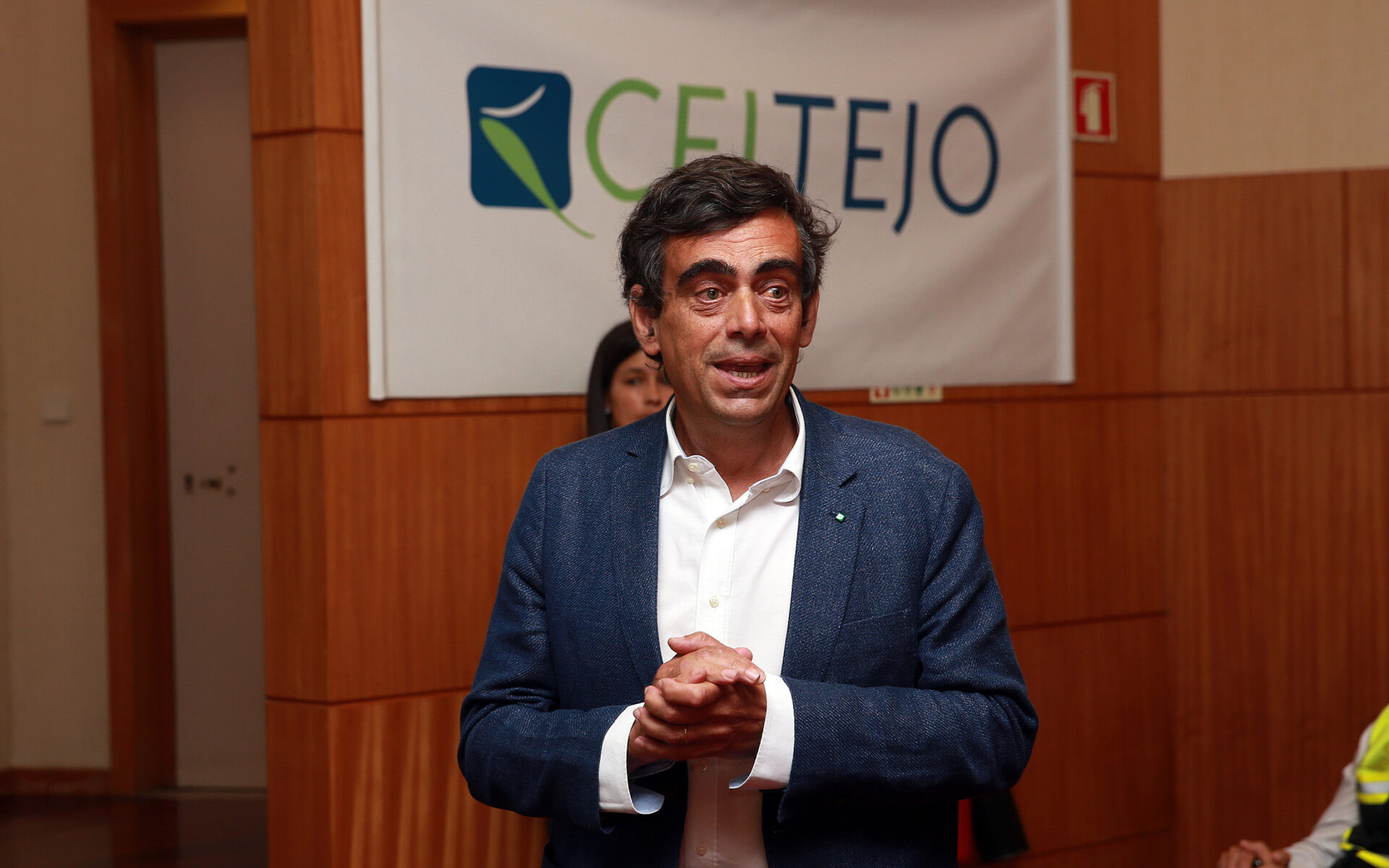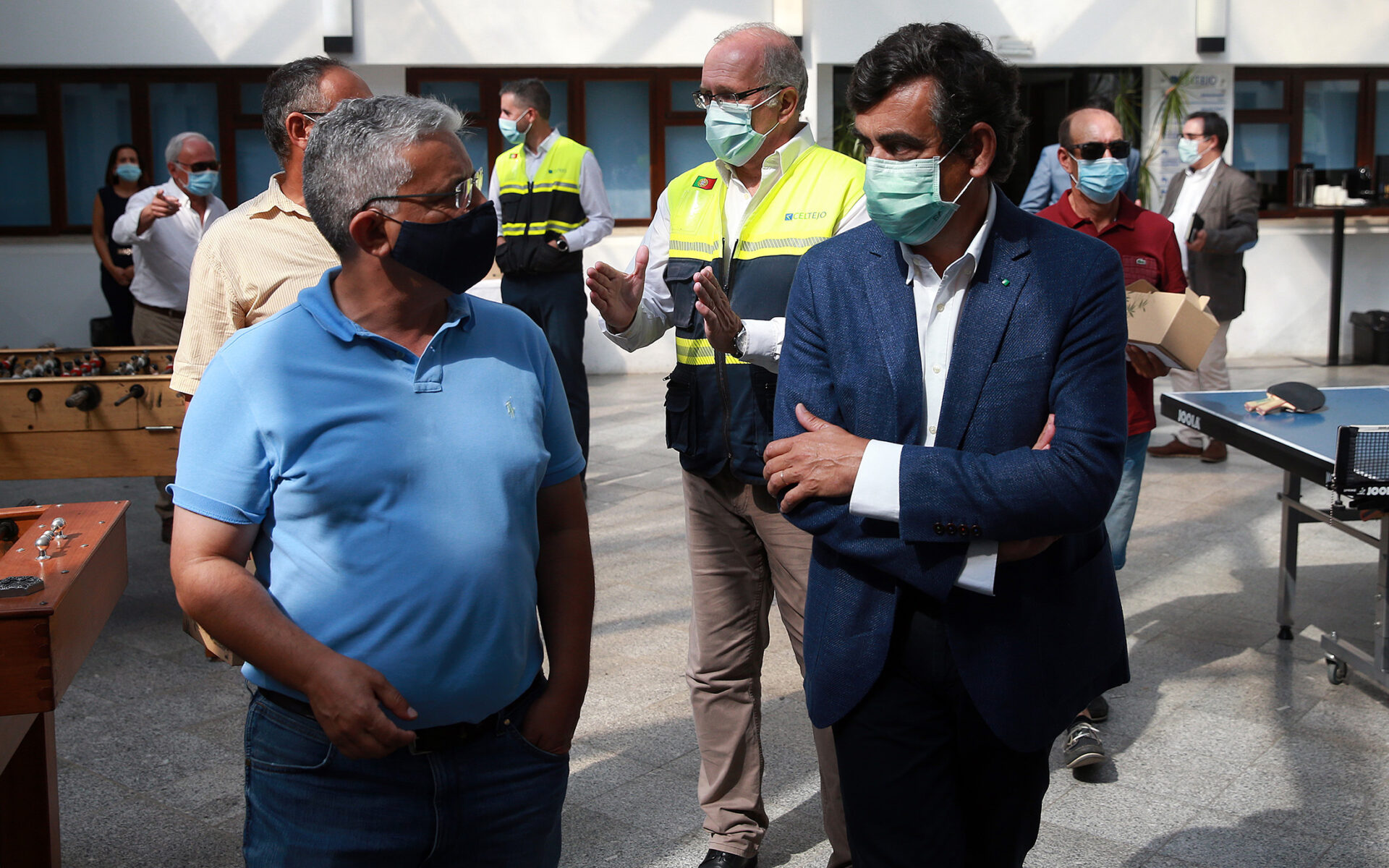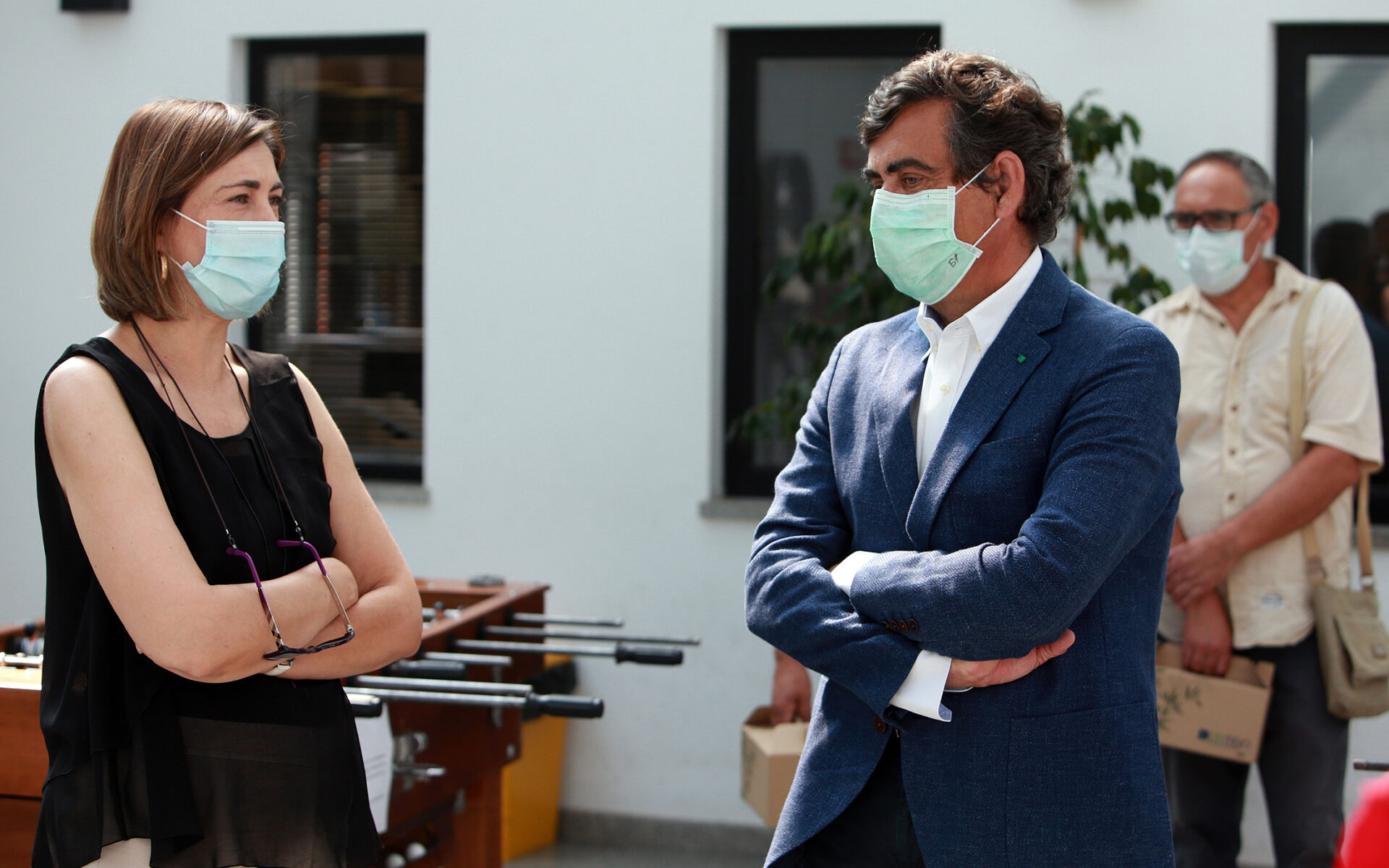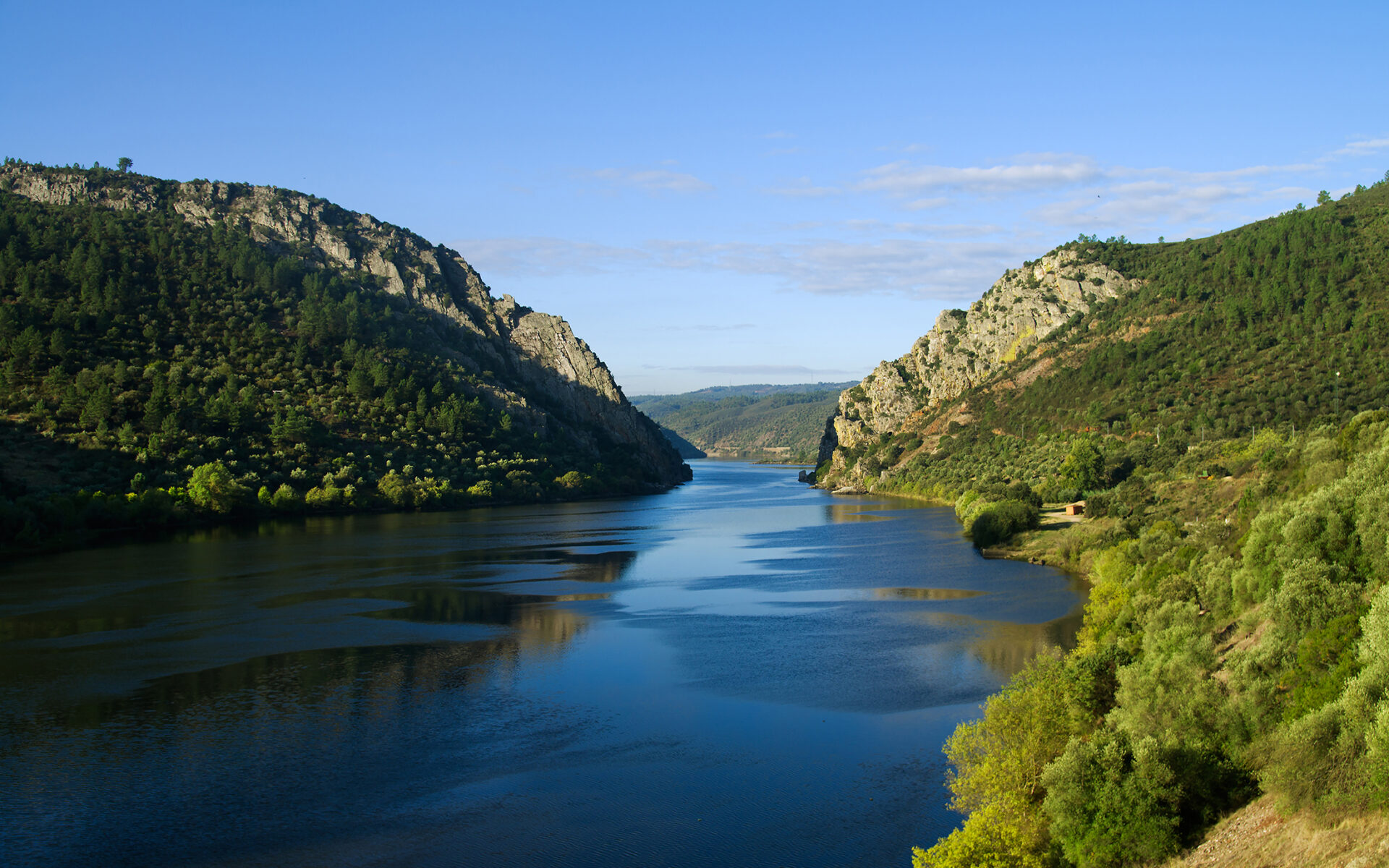Vila Velha de Ródão promotes sustainable development
One of the local authority’s most important tasks is to promote sustainable development which respects the environment whilst contributing towards improving the quality of life and wellbeing of the town’s community.
The Portas de Ródão [Gates of Ródão] are the main attraction of the area of Vila Velha de Ródão. This breathtaking natural monument in the River Tagus is a testament to how the town’s history and economy are inextricably linked with the river. One cannot be fully understood without the other. The dual challenges of preserving the natural legacy of the Tagus and ensuring that the economy remains functional mean having to achieve the right balance.
We met up with Luís Pereira, the mayor of Vila Velha de Ródão, to talk about the future and the sustainable development of the town.

What’s the local authority’s role in promoting measures which fuel investment and economic activity in the region, thereby helping job and wealth creation?
The local authority cannot – nor does it aim to – take the place of private investors with regard to creating jobs and wealth in the region. Our role is therefore to be a support structure for investors, by providing information and directing them towards existing resources and drawing up special measures to support companies setting up in the district, whether by, for example, making land available at a reasonable price or building accesses and infrastructures.
How can the city council simultaneously guarantee environmental sustainability and the quality of life of its inhabitants?
Although it does not have direct fiscal jurisdiction in terms of environmental protection, the council keeps a close eye on what’s going on in the district and the region, and we have an excellent vantage point being so close to the community. Whenever our inhabitants’ quality of life is jeopardised, the council is the first place they turn to with their complaints. We listen to and maintain permanent dialogue with Vila Velha de Ródão’s inhabitants, and companies and with the authorities which are responsible for supervising and ensuring environmental sustainability. Whenever necessary, and whenever it is deemed to be the only way of ensuring compliance with environmental legislation, we won’t hesitate to ask those authorities to step in.
How do you find this balance?
Finding the balance between industrial activity and the environment is difficult. Fortunately, most companies have prioritised achieving sustainable development, and only companies can do this. Companies have demonstrated their social responsibility through their investments in improving production, in order to reduce their environmental impact. Celtejo has taken significant steps in recent years towards this, and continues trying to improve, which can only be a good thing.

How does the local authority regard the investments made by Celtejo?
One of Vila Velha de Ródão city council’s top priorities is to create jobs and to ensure that families and youngsters make the district their permanent home. We are very pleased with the investments made, particularly as they go a long way towards addressing one of our major concerns, which is to guarantee sustainable development which respects the environment whilst contributing towards improving the quality of life and wellbeing of the town’s community. Taking into account the fact that the most recent investments made by Celtejo aim to decrease its dependence on the River Tagus and reduce the environmental impacts of its business activity, with a view to achieving a more sustainable production, we can only regard the efforts made by the company as being very positive.
What are the practical results of bringing these facilities into production?
The Celtejo Doors Wide Open initiative showed us that we can expect that when these facilities are brought on line they will contribute towards production improvements, which will lead to decreased dependence on the water provided by the Tagus, and better treatment and use of the effluent and surplus water generated. This reduces Celtejo’s environmental impact.
The collaboration between Celtejo and these environmental protection associations will result in unique synergies to transform the Tagus into a driving force for developing the land through which it pass.
What are your thoughts on the Celtejo Doors Wide Open initiative?
It’s a fantastic initiative, which demonstrates maturity and a desire to be transparent. This is very positive, given the accusations often made against the company. It allows those who don’t usually have access to the company’s facilities to get a close-up look at its operations and the investments made, such as, for example, the Industrial Waste Water Treatment Plant.
Were you surprised that environmental associations such as ProTejo took part?
I can’t say I was surprised because both the invitation by Celtejo and the presence of ProTejo in this initiative show how committed they both are to defending their causes and achieving their goals, which are not necessarily in conflict with each other, and also show that they are both open to dialogue which can only be a positive thing for all those involved and for the citizens of the district. I think the collaboration between Celtejo and these environmental protection associations will result in unique synergies to transform the Tagus into a driving force for developing the land through which it passes.

You threw down the challenge to enhance the dialogue and relationship between ProTejo and Celtejo, mediated by the city council. Why has it only now become possible to arrive at this platform of understanding between all the parties?
I think that much has been achieved up to now, and it is appropriate to clarify the entire process implemented so far. Now is the time for all the parties to get together in a full and frank discussion to find the same path to tread.
What conclusions did you draw at the end of the Celtejo doors Wide Open initiative?
Flinging the doors wide open in and of itself represents a clear and spontaneous opening up to the outside. The keyword is therefore transparency. This initiative shows the company is keen to put itself out there, welcome others in and explain the remit of a large company such as Celtejo.
We are happy with the results of the investments made and the company’s care in monitoring and performing frequent analyses of the Tagus river water over and above the number stipulated by law.
What’s the local authority’s opinion regarding the indicators set out by Celtejo at this event?
They show how much effort the company has made to minimise its environmental impact, whether by increasing its effluent treatment capacity which is unheard of in this kind of facility, or by taking care to reduce its use of resources, or even by reusing them within the production circuit. We are happy with the results of the investments made and the company’s care in monitoring and performing frequent analyses of the Tagus river water over and above the number stipulated by law.

